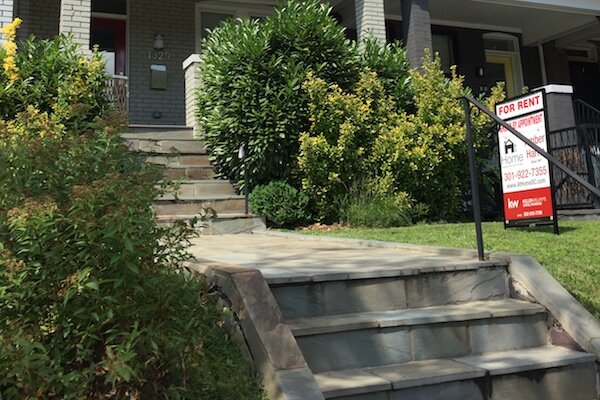The Washington, DC area is known for many things — beautiful cherry blossoms, a great dining scene and so much more…but an affordable housing market is sadly not one of them. With cities around our region regularly ranking high among U.S. locales for average home prices, many homebuyers need help nabbing their piece of the market, and one strategy for many is seeking a home that allows for rental income that helps offset the mortgage.
Being a live-in landlord or owning investment properties that you lease out requires research, reading up and planning, but it may be an option for you or someone you know. There are two primary owner-occupied options we see in our neck of the woods:
Multi-Unit Properties: A multi-unit has two or more independent units allowing for multiple individuals/families to have distinct homes in the same building. You likely are familiar with the terms duplex and triplex, which are two- and three-unit properties.
Shared Single-Family Homes: If your home is larger enough to welcome one or more person, you may elect to have a roommate. The roommate could have their own separate area of the home, like a lower level, or simply occupy a bedroom with shared bath, kitchen, etc.
In either of these types of homes, you can choose to have longer-term tenants with leases or you may opt to welcome someone on shorter, more flexible terms through Airbnb or another platform. We’ve especially seen an increase in these among Millennial homebuyers. But, before you count your leasing income on that future home, here are a few things to keep in mind:
Remember Income is Not Guaranteed: If you are only able to make a property work for your budget by renting, make sure you have a contingency fund and plan if market conditions change. You may need a buffer between tenants (and won’t have income for a period of time), see demand fluctuate (as we saw when a large number of college age students returned home during the pandemic and no longer were seeking off-campus housing, resulting in less demand and depressed prices) and/or (but hopefully not) run into tenants who can’t or won’t pay. So, know your numbers and have savings you can fall back on to ensure you can pay your mortgage if the income decreases or stops.
Understand the Rental Market: You may have recently been a renter, so put your tenant cap back on for a bit. What are your target renters looking for? As a result of the pandemic, for example, more people began relying on personal vehicles over public transportation, so is there off-street parking and, if not, how easy is to park on the street? Another consideration is that secondary units are often in lower levels of homes, which are inherently less desirable than above-grade units. When you take all of this into account, you can best price your unit to find a tenant quickly.
Know the Law: Every jurisdiction has laws that guide housing and rentals, with a focus on protecting tenants and their rights. (DC is notorious for being the most tenant-friendly jurisdiction in the U.S.) You’ll want to ensure the space you intend to rent is legal to rent, know what registrations and licenses you may need (and how much they cost) and understand regulations regarding important things like managing security deposits. As a reminder, laws are constantly evolving and you need to stay on top of those changes. One of the most recent changes that has impacted many owners limits short-term rentals for non-owner occupants but also introduces the need for short-term landlords to register with DCRA.
Be Prepared to Handle Issues: As the landlord, the responsibility falls on you to address any issues — from a broken toilet to pesky pests. This means, just as any homeowner should, you want to ensure you have funds to pay for fixes and upgrades, as needed, and ensure you make yourself available and responsive to the concerns of your tenant(s). If this gives you anxiety or is not consistent with how you want to live, landlording may not be for you. Of note, landlords who don’t share properties with their tenants sometimes will hire a professional property manager for this purpose, but that comes at a cost and is likely not a fit when you’re on site.
Talk to a Tax Professional: As you add another income source, you’ll want to ensure you account for that appropriately on your taxes. Make sure to talk to your CPA.
Do you think sharing your home may be right for you or your path to homeownership? Reach out and let’s dig in, crunch the numbers and see!
Amber Harris is the owner of At Home DC, an interior decorator and a licensed real estate agent with Keller Williams Capital Properties working with clients in DC, Maryland and Virginia.



